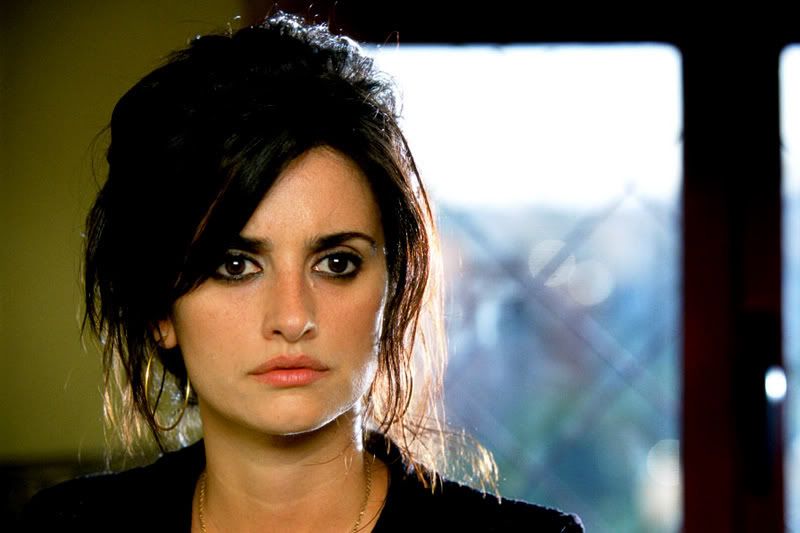 Silence, lies, and the spaces between words; these are themes that respected Australian director Ray Lawrence explores in Jindabyne, a grown-up, mature piece of drama that doesn’t rely on flashy set pieces, extended violence or humour to make it’s voice heard. It is a quiet, unsettling film with some of the finest acting I have witnessed in a film this year (especially a new film). I loved this film, and I admired and also feared it, in a way.
Silence, lies, and the spaces between words; these are themes that respected Australian director Ray Lawrence explores in Jindabyne, a grown-up, mature piece of drama that doesn’t rely on flashy set pieces, extended violence or humour to make it’s voice heard. It is a quiet, unsettling film with some of the finest acting I have witnessed in a film this year (especially a new film). I loved this film, and I admired and also feared it, in a way.In the film, four men go out into the country for a fishing trip. The buddies are in high spirits, glad to escape from the drudgery of work and marriage, but when they discover the body of a young woman floating naked in the river, the whole trip is laced with something rather more sinister. After discussing the matter, the men decide to continue with their fishing trip and ignore the murdered girl. They tie the corpse to the rocks to prevent it drifting away and feel they have accomplished their civic duty. They enjoy the rest of the weekend with a fresh taste for life, and finally report the murder on Sunday morning. When the men return to their town, they find themselves shunned and hated for what they have done, or rather, what they have failed to do.

In the film, Claire (Laura Linney) and Stuart (Gabriel Byrne) are the central couple around which the story flows. Both performances are master classes in subtle acting; Byrne is a lout, cursing and drinking with his friends, but who turns sweetly gentle when playing with his young son, or mumbling an Irish prayer to St. Bridget to protect his house. His Stuart still retains flashes of humor and charm, and we can see why Claire once fell in love with him. Linney is all sad-eyes and quiet anger, full of hurt and astonishment that her husband would act so disrespectfully. The disintegration of their marriage and their separate attempts to come to terms with the tragedy are detailed and intricate, yet nothing is ever made obvious. Much of the time we are expected to understand what is going on by merely watching subtle shifts in the set of Linney’s jaw, or noticing a flicker of fear in Byrne’s eyes. No clumsy exposition or dialogue at play here, which is not to say that this is a purely silent film.
Beatrix Christian adapts Raymond Carver’s short story “So Much Water, So Close To Home” for the big screen and fleshes out Carver’s sparse prose. It’s an admirable job; Christian manages to retain the minimalist despair that prevails throughout Carver’s writing and yet allows the story to grow and expand. The setting is changed to the rural town of Jindabyne in New South Wales, and the body that the four fisherman come across is that of an Aborigine girl, thus adding another layer of guilt and shame to the story. Claire accuses her husband of racism and misogyny, challenging him whether he would have acted the same if it was a young boy who was floating in the river. Her constant probing and questions are understandable, but she did not witness what exactly transpired on that hot day by the river, did not see her husband quaking in fear or his friends throwing up in fright, could not understand the torment that they felt. At the same time, Stuart is unforthcoming, he disappears into his job, snaps at Claire for no reason, invites his overbearing Irish mother to stay with them.

While both leads are magnificent, the supporting cast aren’t shabby either. The other fishermen and their families are all portrayed well, each character is a real-life person with no cardboard villains or genuine good guys. Deborra-Lee Furness in particular, as Claire’s friend Jude, is especially noteworthy, a train wreck of a woman still grieving her daughter’s death. She is doomed and funny and bitter, all at the same time and the group scenes are a pure delight to watch. Directors need to realise that audiences genuinely enjoy watching mature, capable actors handle realistic, funny and thought-provoking dialogue - nothing fancy, nothing expensive, just simple. Almost unbelievably, the casting agents have found two children who can act. With Eva Lazzaro (who plays Caylin-Calandria, June’s granddaughter) and Sean Rees-Wemyss (Tom, the innocent son of Claire and Stuart), Ray Lawrence has at his disposal two children who can act, without either the forced scenery-chewing or the dull naturalness of most child actors. Lazzaro in particular is a seething ball of dark curls and childish pranks, a deeply unsettling little girl who leads the impressionable Tom into bringing a weapon to school.
Jindabyne is not an easy film to watch. The camera shifts almost imperceptibly, skulking around the shady corners of the family house, daring us to peer closer at the couple and poke a finger at their threadbare existence, their pretence that they are a happy, normal family. The darkness and claustrophobia of the house mirror the character’s minds, contrasting with the vast expanse of the Australian outback which is allowed reign freely over the screen. The use of sound, whether the static buzz of the radio in a car or the howl of some unidentified animal deep in the jungle heighten the sense of unease. It’s a dusty, brooding film and there are scenes of genuine terror. We never see the actual murder, but the murderer hovers around the edges of some scenes exuding menace and threat. When Claire, desperate to make amends, tries to pay her respects to the grieving Aborigine family, their cold stares and bolted doors shut out the audience as well, and I’m sure I’m not the only viewer to come away with a disturbing sense of guilt. I stayed until the very end of the credits, until the lights came up. It seemed like the only thing to do, the proper, “respectful” way to act.

I have a feeling that Jindabyne will stay with me for a long time. It’s certainly been on my mind a lot since I saw it yesterday. The posters call it “the most haunting film you will see all year” and I’m inclined to agree. I just can’t get the hazy scenery out of my head, the feet of the dead woman lapping gently in the water, the musical strains and the quiet feeling of despair. It’s probably the best new film I’ve seen all year, and if Linney and Byrne don’t get nominated come awards season, there is something terribly wrong with the world.



5 comments:
You sure know how to pick them missus!! Might look into this one alright, I still say you should get a job at this. When you come to UCD (nudge nudge), you should apply for the College Tribune! XXXX
Great review. Sounds like an amazing film.
*cough*don't go to UCD*cough*
*cough* yes she will *cough* cos we're the best *sniff*. (Waits for kick in the balls from Ann Marie) *whimpering* you may have one the battle but not the war *collapses cupping crotch* XXXXXXXXXXXXXXXXXXXXXXXXXXXXXXXXXXXXXXXXXXXXXXXXXXXXXXXXXXXXXXXXXXXXXXXX That comments at least 18times better than my last one;)
I'm not going to college, so there! ;P
...
...
..
..
..
.
.
.
...not really
Nice brief and this post helped me alot in my college assignement. Gratefulness you on your information.
Post a Comment